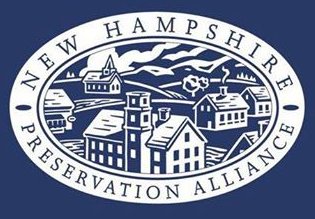Preservation To-Dos from Communities and Consequences II: Rebalancing New Hampshire’s Human Ecology: Book Available From Preservation Alliance
Do you know what makes your community thrive? And what is standing in its way?
These are questions that demographer Peter Francese, former Agricultural Commissioner, Preservation Alliance board member and writer Lorraine Stuart Merrill and filmmaker Jay Childs have been pondering. The trio has spent the last two years learning how local communities are growing increasingly inhospitable to young people, families and essential workers. They wanted to show what communities need to do now to rebalance the state’s human ecology. Communities and Consequences, II and a companion film premiering on NH PBS explore the tensions between traditional New Hampshire values like family, community, equal opportunity--and local control and taxation.
It’s those tension points that are sparking positive change.
Success stories featured in the book include one in Bradford (photo here courtesy Communities and Consequences and Lancaster).
Peter Francese and others believe that some of that resistance comes from misunderstanding things like the impact of new housing stock on the cost of education. “It’s a stubborn myth,” he says, “and it’s doing great harm to communities across the state. “
Produced in partnership with New Hampshire PBS, the film, companion book and upcoming engagement series are designed to help communities rethink how they plan, legislate and partner to create something new and help their communities thrive.
In a recent Preservation Alliance program, Merrill offered that there are great models of success around the state and that ordinary citizens can help nudge things back in a good direction. Here are ideas generated in a recent program with the two authors and planner Steve Whitman of Resilience Planning and Design.
Five Things You Can Do:
1. Read the book and buy copies for your planning board members. There’s also a copy at your local library. Communities and Consequences II shares stories of how people are working together to find innovative ways to create vibrant and welcoming places for people of all ages and backgrounds, and ensure a thriving future for their communities and the state. The myth that age-restricted housing is cheaper and better for communities is deep seeded. Times change, people rotate off and on boards and commissions, and education and support need to continue. The book also offers resources like Stay Work Play, New Hampshire Housing and the Preservation Alliance to stay abreast of new data and events like New Hampshire Housing’s Outskirts to Downtowns.
Process and projects such as the revitalization of the Parker J. Noyes Building (one of the Preservation' Alliance’s Seven to Save and grant recipients) in Lancaster are also featured success stories in the book.
2. What’s the positive image of your community? Help your local leaders clarify this and promote it. Rochester is showcasing its arts and downtown culture. Franklin is highlighting its iconic whitewater activities. Lots of communities have great historic resources. What’s more, long-timers tied to place, and newcomers who have moved there because of its qualities, are prime candidates for preservation activities. The book also showcases a new wave of special chapters in master plans that light topics like agriculture and offer “road maps” for action.
3. Try to get ALL people involved. When Lancaster leaders were doing their master planning, they went TO the high school and TO the senior center instead of expecting diverse stakeholders to come to them. Lancaster also includes two high school students on the planning board to gain that youth perspective and engage young leaders. The book features thoughts on involving new immigrants as well.
4. Match your regulatory structure and incentives to the community’s vision. Many towns have zoning that doesn’t allow traditional Main Street design. Many towns also haven’t filled their toolbox with available tools like the downtown tax incentive program, RSA 79-E.
5. Vote for candidates who care about the inter-related issues of historic preservation, land conservation, housing and economic development. Watch for local and state opportunities to support removal of obstacles and new resources to help meet these goals.
Thanks to NH PBS for overview information for this blog.


